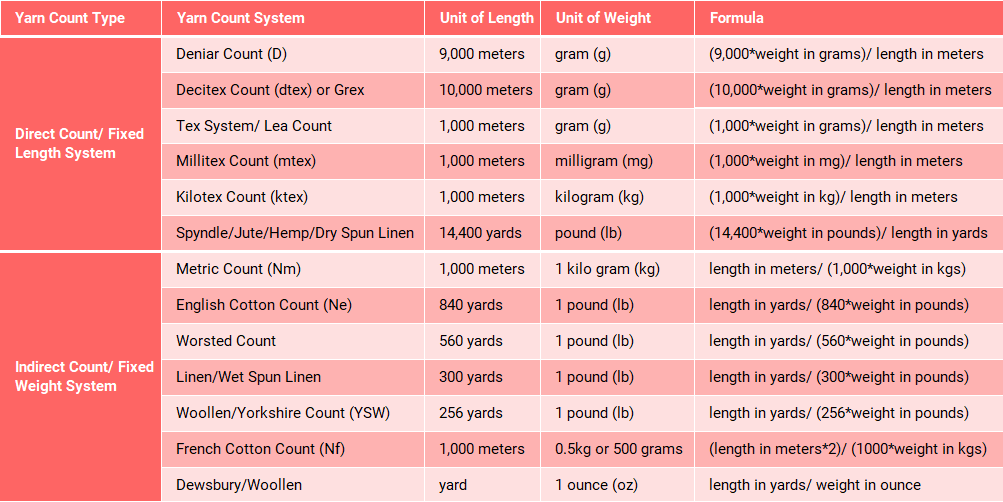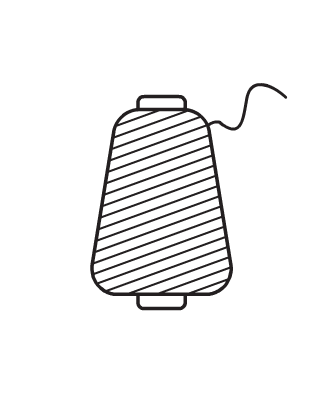Results
Yarn Counts (number of)
| Unit | Value | Unit Description |
|---|---|---|
| Denier | Grams per 9 000 meters | |
| Decitex | Grams per 10 000 meters | |
| Tex | Grams per Km | |
| Metric | Km per kg | |
| English Cotton | 840 yd lengths per lb | |
| Woollen | 256 yd lengths per lb | |
| Worsted | 560 yd lengths per lb | |
| Dewsbury | Yd lengths per oz | |
| Linen | 300 yd lengths per lb | |
| Jute | Lb per 14 400 yd |
What is Yarn Count?
Yarn count is a key quality parameter that indicates the linear density or mass per unit length of yarn, expressed as a ratio of length to weight or weight to length. Yarn count reflects the yarn's fineness, coarseness, or overall size, with thinner yarns producing lighter, finer, and softer fabrics, while thicker yarns result in heavier and coarser fabrics..
Why is Yarn Count Important?
Almost all the yarn produced in the world gets converted into fabric. Textile manufacturers, fashion designers, and those involved in producing fabrics or yarn-based products heavily rely on yarn count for quality control and product development. Yarn count impacts fabric properties like thickness, softness, strength, quality, weight, comfort, and fluidity. It also influences the appearance and texture of the fabric.
Types of Yarn Count
The count can be classified into two types of count systems based on natural and manmade fiber.
- Direct count system
- Indirect count system
Direct Count System is generally used for synthetic fiber, jute, silk etc. The common features of aII direct count systems are the length of yarn is fixed and the weight of yarn varies according to its fineness. Thus, higher the count, coarser the yarn.
Indirect Yarn Count System expresses the number of length units in one weight unit. So, higher the count, finer the yarn. It’s generally used for cotton, worsted, linen (wet spun) etc.
Yarn Count Formula
Different system or units are used to measuring the yarn count, depending on the material used and the area where the yarn was manufactured -

Yarn Count conversion
Here is the yarn conversion formula of few commonly used systems –

For more Yarn count converter calculator.




 Empty Cart
Empty Cart



